The Civil Services Aptitude Test (CSAT) is Paper-II of the UPSC Civil Services Preliminary Examination. UPSC CSAT Syllabus 2026 is designed to assess a candidate’s logical reasoning, analytical ability, comprehension, and decision making skills. The CSAT is qualifying in nature, and candidates must score at least 33% (66.67 out of 200) to clear it. The marks are not counted in the final merit list but failing this paper results in disqualification from the Mains stage. The paper is conducted in both English and Hindi with negative marking of 1/3rd for incorrect answers.
UPSC CSAT Syllabus 2026
The Civil Services Aptitude Test (CSAT) is a part of the UPSC CSE Prelims 2026. UPSC CSAT Syllabus 2026 tests a candidate’s aptitude, reasoning and problem solving abilities. It is only qualifying in nature but understanding the UPSC Syllabus 2026 for CSAT is important to prepare effectively and avoid elimination in the prelims stage. The paper includes questions from comprehension, logical reasoning, and basic numeracy. With increasing difficulty in recent years, CSAT demands regular practice and smart preparation.
UPSC CSAT Syllabus 2026 Overview
The UPSC CSAT Syllabus 2026 consists of 80 multiple-choice questions totalling 200 marks, with a 2-hour time limit. The overview of the CSAT Syllabus has been provided below.
| UPSC CSAT Exam Pattern 2026 Overview | |
| Feature | Details |
| Exam Name | Civil Services Aptitude Test (CSAT) |
| Paper Code | General Studies Paper-II |
| Number of Questions | 80 multiple-choice questions |
| Total Marks | 200 |
| Duration | 2 hours |
| Type of Questions | Objective (Multiple Choice Questions – MCQs) |
| Minimum Qualifying Marks | 33% (66.67 marks) |
| Negative Marking | Yes, 1/3rd mark deducted for each wrong answer (0.83 marks) |
| Language | English and Hindi |
| Official Website | upsc.gov.in |
UPSC CSAT Syllabus 2026 Topic-wise
UPSC CSAT Syllabus 2026 covers a total of 7 topics including comprehension, reasoning, decision-making, and basic numeracy. It tests a candidate’s ability to understand, analyse, and solve problems, skills essential for a career in civil services.
| UPSC CSAT Syllabus 2026 Topic-wise | |
| Topic | Description |
| Comprehension | Understanding and interpreting written passages |
| Interpersonal Skills | Communication, social awareness, and emotional intelligence |
| Logical Reasoning | Puzzles, syllogisms, series, blood relations |
| Decision-Making & Problem Solving | Situational judgment, ethical reasoning |
| General Mental Ability | Basic reasoning, coding-decoding, and analytical skills |
| Basic Numeracy | Arithmetic, percentages, ratios, averages (Class 10 level) |
| Data Interpretation | Analysing graphs, charts, tables, and data sets |
UPSC CSAT Exam Pattern 2026
The UPSC CSAT Exam Pattern 2026 contains 80 multiple-choice questions worth 200 marks. Candidates need to score at least 33% (66.67 marks) to qualify for the UPSC CSE Mains Exam 2026.
| UPSC CSAT Exam Pattern 2026 | |
| Paper Name | General Studies Paper-II (CSAT) |
| Mode of Exam | Offline (Pen and Paper) |
| Type of Questions | Objective (Multiple Choice Questions) |
| Number of Questions | 80 |
| Total Marks | 200 |
| Marks per Question | 2.5 marks |
| Negative Marking | Yes; 1/3rd of the marks allotted per question (0.83 marks) deducted for each incorrect answer |
| Duration | 2 hours |
| Language Options | English and Hindi |
| Qualifying Marks | 33% (i.e., 66.67 marks out of 200) |
| Nature of Paper | Qualifying only; marks not counted in the final merit list |
UPSC CSAT Maths Syllabus 2026
For those candidates studying for CSAT’s Maths section, we have a special syllabus breakdown for you. The detailed UPSC CSAT Maths Syllabus 2026 has been provided below in the table.
| UPSC CSAT Maths Syllabus 2026 | |||
| Sr. No. | Basic Numeracy | Sr. No. | General Mental Ability |
| 1 | L.C.M & H.C.F | 1 | Probability |
| 2 | Rational Numbers & Ordering | 2 | Trains |
| 3 | Square Roots & Cube Roots | 3 | Boats & Streams |
| 4 | Averages | 4 | Time & Work |
| 5 | Set Theory | 5 | Partnership |
| 6 | Decimal Fractions | 6 | SI and CI |
| 7 | Ratio & Proportion | 7 | Mensuration & Area |
| 8 | Simplification | 8 | Time and Distance |
| 9 | Number System | 9 | Profit & Loss |
| 10 | Surds & Indices | 10 | Work & Wages |
| 11 | Divisibility Rules | 11 | Pipes & Cisterns |
| 12 | Percentages | 12 | Permutation & Combination |
| 13 | Remainder Theorem | 13 | Alligation & Mixtures |
| 14 | Geometry | ||
UPSC CSAT Reasoning Syllabus 2026
The UPSC CSAT Reasoning Syllabus 2026 consists of two very important sections: Logical Reasoning & Analytical Ability (LR & AA.) and Data Interpretation & Data Sufficiency (DI & DS).
| UPSC CSAT Reasoning Syllabus 2026 | |||
| Sr. No. | Logical Reasoning & Analytical Ability (LR & AA) | Sr. No. | Data Interpretation & Data Sufficiency (DI & DS) |
| 1 | Number & Letter Series | 1 | Table Charts |
| 2 | Coding-Decoding | 2 | Pie Charts |
| 3 | Syllogism | 3 | Bar Graphs |
| 4 | Statement & Conclusion | 4 | Data Sufficiency |
| 5 | Analytical Reasoning | 5 | Arithmetical Reasoning |
| 6 | Calendar & Clocks | 6 | Classification & Analogy |
| 7 | Direction Sense Test | 7 | Seating Arrangement |
| 8 | Blood Relations | 8 | Venn Diagrams |
| 9 | Cause & Effect | ||
UPSC CSAT Syllabus 2026 Preparation Tips
For the preparation of UPSC CSAT Syllabus 2026 set aside specific hours every week. Target a minimum of 4-5 hours a week, alongside your General Studies study plan.
- Comprehension: Read editorials from newspapers such as The Hindu or The Indian Express regularly. Practice summarizing sections and responding to related questions.
- Logical Reasoning & Analytical Ability: Crack puzzles, series, and pattern-type questions. Use books such as A Modern Approach to Verbal and Non-Verbal Reasoning by R.S. Aggarwal.
- Basic Numeracy: Update Class 10 mathematics concepts. Practice exercises on percentages, ratios, averages, and time-speed-distance.
- Mock Tests: Take CSAT mock tests periodically under a timed environment. Review your performance to gauge weak areas and concentrate on strengthening them.
- Previous Year Papers: Complete previous years’ CSAT papers to get an idea of the exam pattern and common questions.
- Time Management: While appearing for the exam, begin with the sections you’re most familiar with in order to gain confidence. Distribute time wisely to each section.
Recommended Resources for UPSC CSAT Syllabus 2026
Books play a significant role in UPSC Prelims 2026 preparation, providing detailed information, clear ideas, and in-depth coverage of topics. The correct book selection and effective application are essential for success. Below is a list of crucial books for the UPSC CSAT Syllabus 2026:
- CSAT Paper II Manual – Tata McGraw-Hill (TMH)
- Verbal & Non-Verbal Reasoning – R.S. Aggarwal
- Quantitative Aptitude for Competitive Examinations – R.S. Aggarwal
- Fast Track Objective Arithmetic – Rajesh Verma
- A Modern Approach to Logical Reasoning – R.S. Aggarwal
- Previous Year CSAT Question Papers – UPSC Official Papers
- Arihant CSAT Paper II Book – Arihant Experts
UPSC CSAT Syllabus 2026 FAQs
What is the CSAT paper in UPSC?
CSAT (Civil Services Aptitude Test) is Paper II of the UPSC Preliminary Examination, designed to test analytical, reasoning, comprehension, and decision-making skills. It is qualifying in nature.
What is the syllabus for UPSC CSAT 2026?
The official syllabus includes: Comprehension, Interpersonal & communication skills, Logical reasoning & analytical ability, Decision-making & problem-solving, General mental ability, Basic numeracy (up to Class X level) and Data interpretation (charts, tables, graphs)
How many marks are required to qualify CSAT?
You need to score at least 33% (66.67 out of 200 marks) to qualify. Only qualifying; marks aren’t counted in the final merit for prelims.
Is there negative marking in CSAT?
Yes. 1/3rd of the marks which is 0.83 for each incorrect answer will be deducted as a penalty.
Is CSAT difficult to clear?
CSAT has become increasingly tricky over the years. Candidates from non-maths backgrounds often find it challenging.
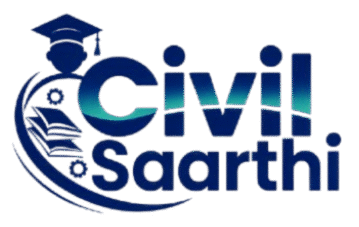

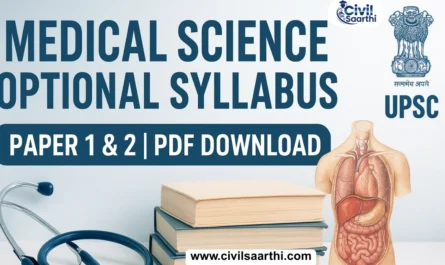
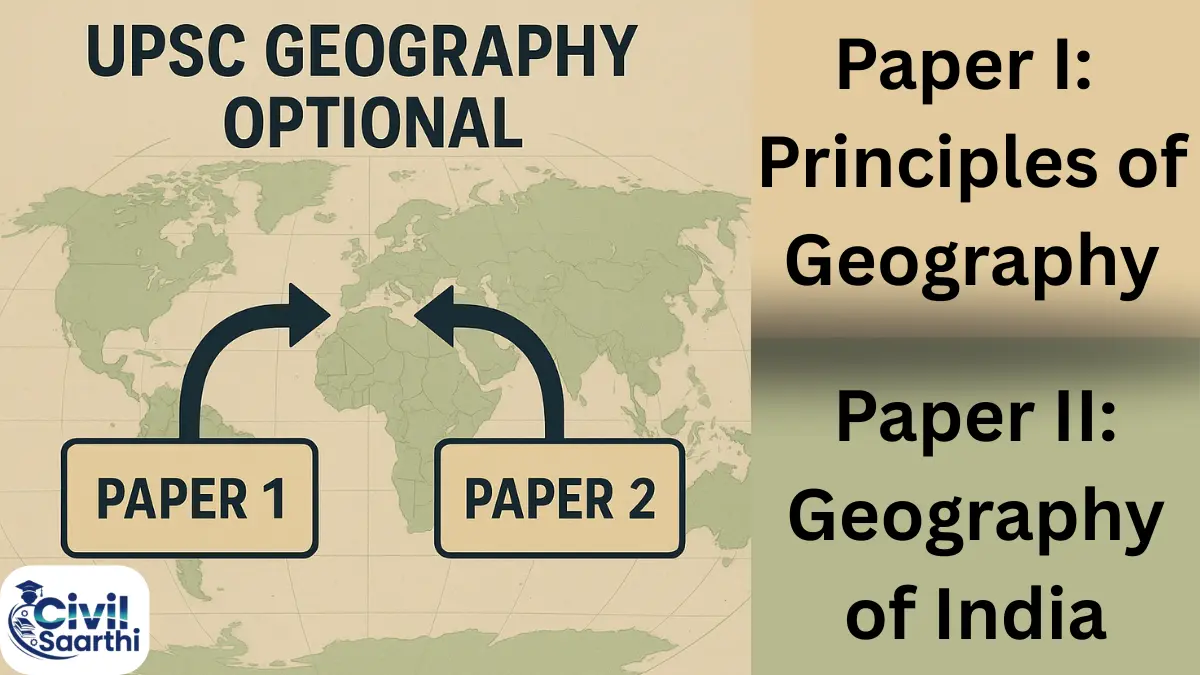


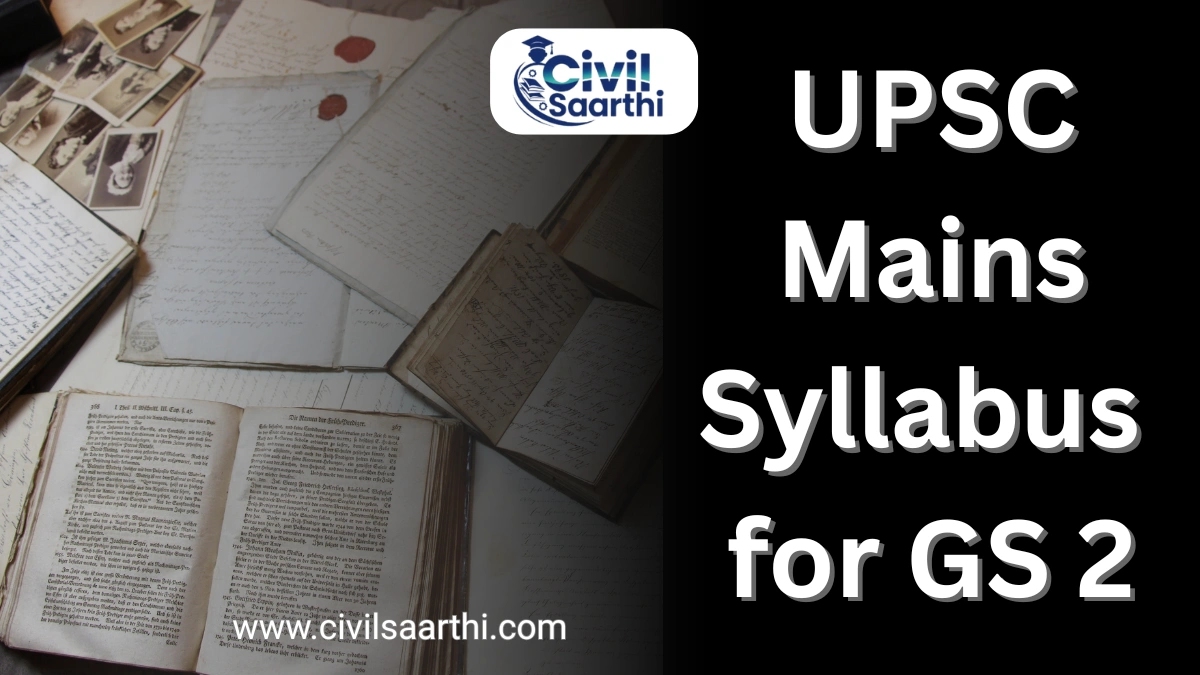
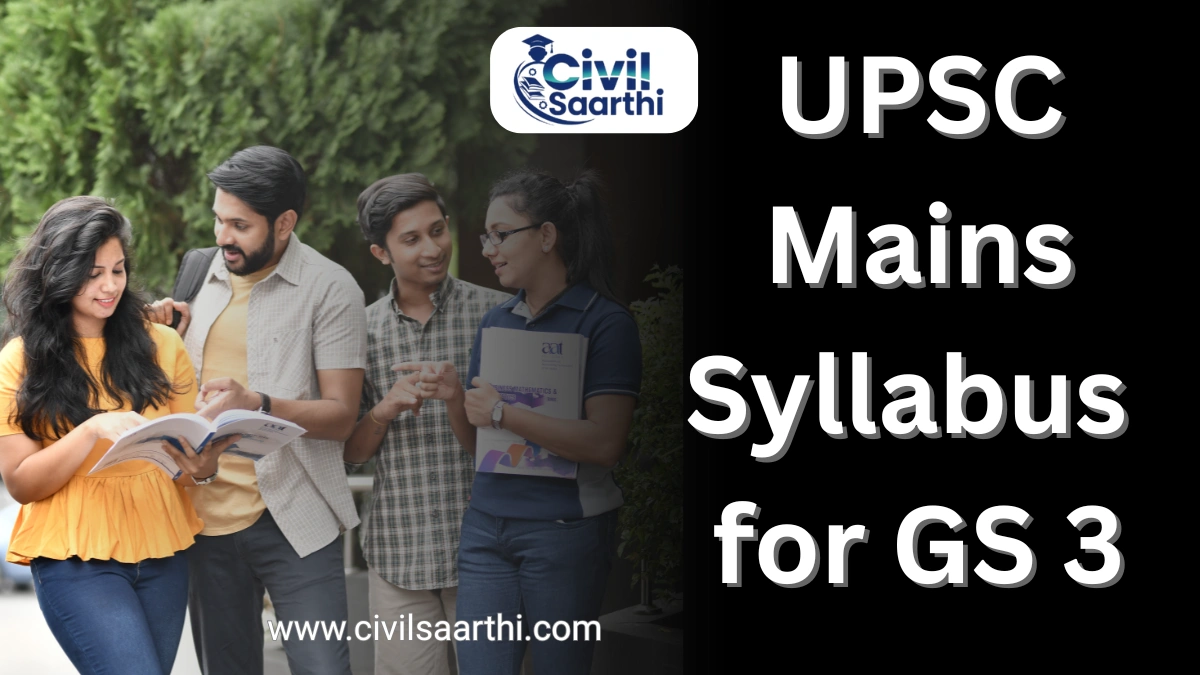
One thought on “UPSC CSAT Syllabus 2026, Exam Pattern, Marking Scheme”